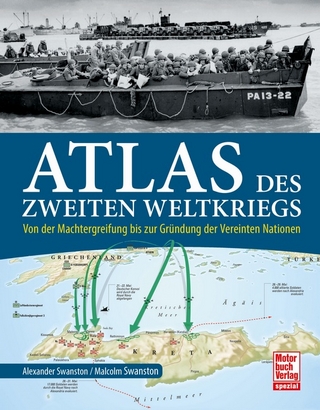
At the Dawn of Airpower
The U.S. Army, Navy, and Marine Corps' Approach to the Airplane, 1907-1917
Seiten
2022
Naval Institute Press (Verlag)
978-1-68247-729-8 (ISBN)
Naval Institute Press (Verlag)
978-1-68247-729-8 (ISBN)
Examines the development of aviation in the US Army, Navy, and Marine Corps from their first official steps into aviation up to the United States’ declaration of war against Germany in April 1917. Burke explains why each of the services wanted airplanes and show how they developed their respective air arms and the doctrine that guided them.
At the Dawn of Airpower: The U.S. Army, Navy, and Marine Corps' Approach to the Airplane, 1907-1917 examines the development of aviation in the U.S. Army, Navy, and Marine Corps from their first official steps into aviation up to the United States' declaration of war against Germany in April, 1917. Burke explains why each of the services wanted airplanes and show how they developed their respective air arms and the doctrine that guided them. His narrative follows aviation developments closely, delving deep into the official and personal papers of those involved and teasing out the ideas and intents of the early pioneers who drove military aviation Burke also closely examines the consequences of both accidental and conscious decisions on the development of the nascent aviation arms.
Certainly, the slow advancement of the technology of the airplane itself in the United States (compared to Europe) in this period affected the creation of doctrine in this period. Likewise, notions that the war that broke out in 1914 was strictly a European concern, reinforced by President Woodrow Wilson's intentions to keep the United States out of that war, meant that the U.S. military had no incentive to "keep up" with European military aviation. Ultimately, however, he concludes that it was the respective services' inability to create a strong, durable network connecting those flying the airplanes regularly (technology advocates) with the senior officers exercising control over their budget and organization (technology patrons) that hindered military aviation during this period.
At the Dawn of Airpower: The U.S. Army, Navy, and Marine Corps' Approach to the Airplane, 1907-1917 examines the development of aviation in the U.S. Army, Navy, and Marine Corps from their first official steps into aviation up to the United States' declaration of war against Germany in April, 1917. Burke explains why each of the services wanted airplanes and show how they developed their respective air arms and the doctrine that guided them. His narrative follows aviation developments closely, delving deep into the official and personal papers of those involved and teasing out the ideas and intents of the early pioneers who drove military aviation Burke also closely examines the consequences of both accidental and conscious decisions on the development of the nascent aviation arms.
Certainly, the slow advancement of the technology of the airplane itself in the United States (compared to Europe) in this period affected the creation of doctrine in this period. Likewise, notions that the war that broke out in 1914 was strictly a European concern, reinforced by President Woodrow Wilson's intentions to keep the United States out of that war, meant that the U.S. military had no incentive to "keep up" with European military aviation. Ultimately, however, he concludes that it was the respective services' inability to create a strong, durable network connecting those flying the airplanes regularly (technology advocates) with the senior officers exercising control over their budget and organization (technology patrons) that hindered military aviation during this period.
Laurence M. Burke II is the aviation curator at the National Museum of the Marine Corps in Quantico, VA. He earned an undergraduate degree from Rensselaer Polytechnic Institute, a master's in Museum Studies from George Washington University, and, in 2014, a PhD in History and Public Policy from Carnegie Mellon University. Since then, he has taught history at the United States Naval Academy as a post-doc and then served as curator of U.S. Naval Aviation at the National Air and Space Museum for several years before starting the job at Quantico.
| Erscheinungsdatum | 23.03.2022 |
|---|---|
| Reihe/Serie | History of Military Aviation |
| Verlagsort | Annopolis |
| Sprache | englisch |
| Maße | 152 x 228 mm |
| Gewicht | 151 g |
| Themenwelt | Sachbuch/Ratgeber ► Geschichte / Politik ► Allgemeines / Lexika |
| Natur / Technik ► Fahrzeuge / Flugzeuge / Schiffe ► Militärfahrzeuge / -flugzeuge / -schiffe | |
| Geschichte ► Teilgebiete der Geschichte ► Militärgeschichte | |
| Sozialwissenschaften ► Politik / Verwaltung | |
| Technik ► Fahrzeugbau / Schiffbau | |
| Technik ► Luft- / Raumfahrttechnik | |
| ISBN-10 | 1-68247-729-0 / 1682477290 |
| ISBN-13 | 978-1-68247-729-8 / 9781682477298 |
| Zustand | Neuware |
| Haben Sie eine Frage zum Produkt? |
Mehr entdecken
aus dem Bereich
aus dem Bereich
von der Machtergreifung bis zur Gründung der Vereinten Nationen
Buch | Softcover (2023)
Motorbuch Verlag
24,90 €


